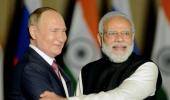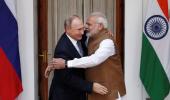The mixed narratives emerging from Russia undermine Mr Putin's position and authority even more than the actual facts, observes Mihir S Sharma.
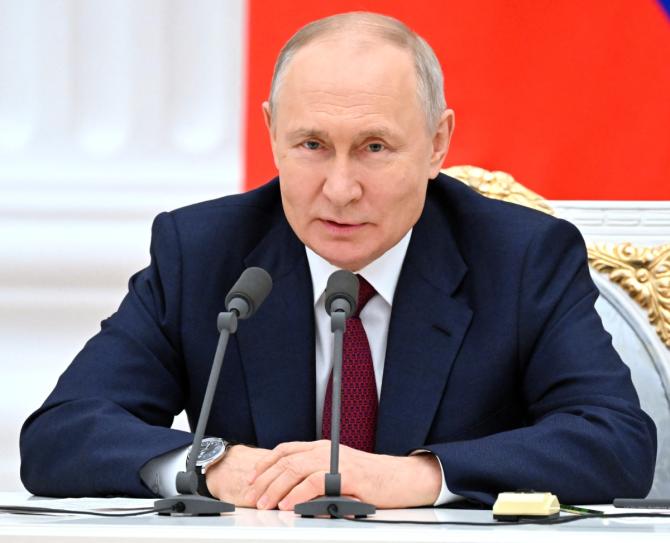
Since the armies of the Russian Federation began their full-scale assault on Ukraine in February 2022, it has become increasingly hard to understand what is happening within that country, its military, and its government.
Last month, hundreds of armed men in a convoy motored down empty highways towards a Moscow undefended except by lightly armed guardsmen and cops -- and we still know practically nothing about how or why.
Facts that are undisputed are thin on the ground in this case.
We know that the Wagner Group, a mercenary outfit that the Kremlin has long used for its foreign adventures in Africa and West Asia, and more recently in some of the bloodier battles in Ukraine, took over the regional capital of Rostov.
We know that one section of Wagner then headed up north on a 1,100-kilometre drive to Moscow.
We know that this detachment shot down a few helicopters and at least one (expensive) surveillance aircraft; and we know that, less than 24 hours later, it turned around and went back to its camps. And, finally, we were told (but do not know) that Wagner's leaders will be given asylum in Belarus and some of its fighters incorporated into the regular Russian army.
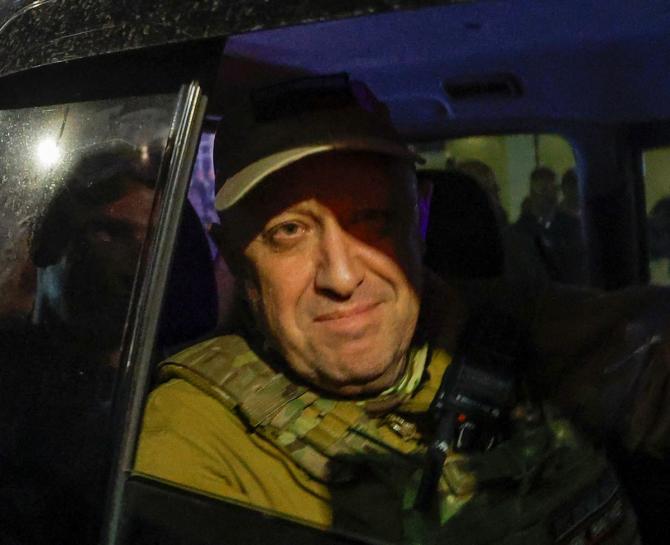
Was this the beginnings of a civil war? An attempted coup? A corporate dispute over pay and status? An elaborate cover-up for a military reshuffle? Or a way to get Russian fighters back into Belarus, and on Ukraine's northern border?
Has it weakened President Vladimir Putin's grip on the country, or strengthened his resolve to crush possible opposition?
Do the images of Russian civilians in Rostov cheering the Wagner fighters reveal the nationalist leanings of that country, or perhaps dissatisfaction with Mr Putin? Or are those images also staged?
If they were real, why were they broadcast on tightly controlled State television when the mercenaries had already been condemned by the president as traitors?
The Russian State, over the past two decades, has pioneered the use of multiple, overlapping narratives to obscure the truth.
It has used this as asymmetric warfare against the West for some time: Creating brush-fires of distraction that confuses even an open media.
It is an unusually effective innovation -- cheaper and more effective than clumsy, 20th-century propaganda. But, it turns out, it works against them as well as it does for them.
At moments such as this, States benefit from clear communication that is trusted by its population and the wider world. But the mixed narratives emerging from Russia undermine Mr Putin's position and authority even more than the actual facts of the case.
The undisputed facts are, of course, damning enough.
For years, the Kremlin officially denied that the Wagner Group was an extension of its own foreign policy, so that the mercenaries' excesses and human-rights violations in Africa and elsewhere could not be laid at the Russian leadership's door.
But, as of last month, Mr Putin had to officially point to the level of monetary support that Wagner had received from the Russian exchequer, in order to demonstrate their level of ingratitude.
And the fact that the Wagner march was essentially unopposed for hundreds of kilometres suggests that there was genuine confusion within the Russian armed forces as to whether they should be attacked -- in other words, either that country's chain of command is in a shambles, or divided in its loyalties, or even more inefficient than hitherto known.
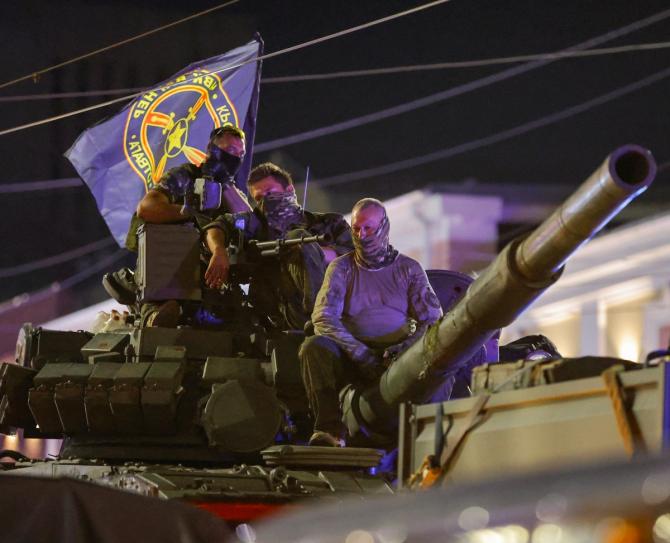
Many of Mr Putin's governance innovations have been picked up by other democratically chosen leaders of his populist-authoritarian bent.
Here are three of those innovations.
First, complete control of narratives has been replaced by the sowing of confusion and deniability.
Second, an unspoken contract of economic and political stability in return for obedience replaces the promise to protect liberal freedoms.
Finally, the national leader must project strength above all, and the grinding down of opposition is not a flaw but a virtue.
How are these three holding up? Not well.
Mr Putin has tried and failed, so far, to gain some control of the narrative -- undermined not by Western propaganda or the liberal global media but by his own ultra-nationalists and internal social media.
And his assurance to Russian citizens of stability lies in tatters if an army of mercenaries can walk all over the country without being crushed by the official military, and cause rumours to spread that the president himself has had to flee Moscow in his private plane.
That does not convey strength, either -- neither does news that the president of Belarus, not Mr Putin, arranged the final truce. And a State in which Opposition leaders have been jailed or died mysteriously nevertheless has granted amnesty to people described as 'traitors'. Where is that strength when it faced a serious test?
There is much that we do not know about what happened in Russia last month. But the story of the Russian Federation since February 2022 should at least show the world's would-be authoritarians that Mr Putin's governance innovations are not as robust as all that.
Disclaimer: These are Mihir S Sharma's personal views.
Feature Presentation: Rajesh Alva/Rediff.com

